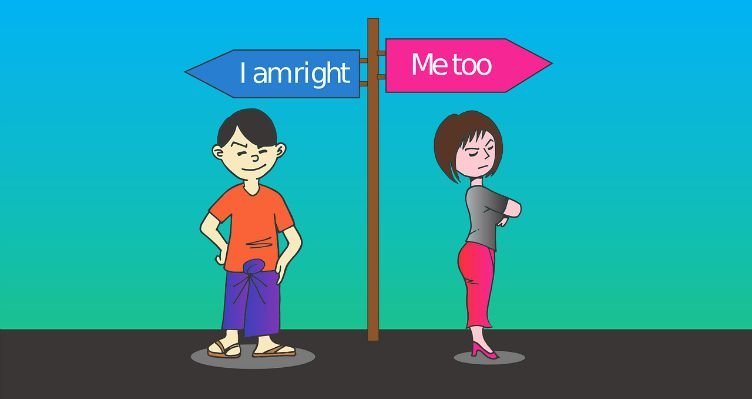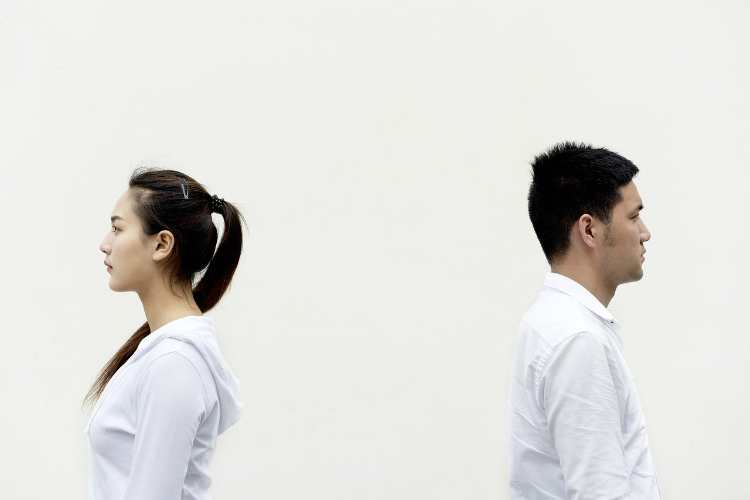Being Wrong – Owning This Grizzly Bear
I was brought up with a repetitive phrase told to me throughout childhood and into teen years whenever I had an emotional reaction, frustration and not feeling heard, the statement replayed was ‘There’s something wrong with you’ (but in my mother’s Geordie tones ‘There’s something wrang with yee’).
I hadn’t realised until I started looking at my life, my choices and my personality, how much that single statement had affected how I lived.
Fighting The Double Edged Sword
Both my parents had very low self-esteem and were not taught how to handle emotions and how to interact with those with different viewpoints or ideas. Instead of stepping back and seeing the other person’s point of view they would say nothing or get angry and judgemental of that person.
I fought hard from my ego to not be wrong by shouting and screaming at those who criticised, but even when I was calmly offered feedback I was unable to receive it. I took any feedback different from my own ideas as triggers saying, ‘They are telling me I am wrong’, but more so, they are telling me as a whole that I’m wrong all over.
I fought to not be wrong while trying to prove I was of value and enough. I did this through ‘people pleasing’.
I believed (incorrectly) that if I could just help people feel comfortable and at ease around me, I would no longer ‘be’ wrong, but I lost who I was in the process, I lost my true voice.
Lack of Trust in Self
Early on I was taught not to trust my instincts, my intuition or my choices, from parents, teachers and beyond. I believed them all, so I stopped expressing myself outside my family. If I had passionate ideas or different ideas to other people about life, I held them back for fear of negative feedback, critique or attack. I chose to retreat into myself and tried to be who I thought the world wanted me to be. I tried to fit in and this just ended up in passionate explosions of anger when unbalanced viewpoints slipped out because they were not centered in truth. They were centered in illusions based on my own personal triggers.
I was so frightened of making mistakes and getting and being wrong that I tried not to make any. It was not a way to live. I was not living, I was dying.
After a deep conversation over lunch with a good friend about a recent reaction to people giving me feedback on a status of mine on Facebook, she helped me recognise that I had not been taught how to receive feedback from the world. Most adults by my age will have had feedback and learned how to internally handle it. Instead I closed my mouth and hid from any kind of response from others and in so doing kept my own truths away from the world at large.
I also realised that because of my early upbringing and traumatic childhood events, I had been looking to the world, looking outside of myself, for feedback that I was okay. In conversations, if there was silence I would anxiously fill it with questions, thoughts, knowing full well that I was filling the space and feeling thoroughly uncomfortable in the process.
I was looking for positive feedback that I wasn’t wrong and so if someone was silent and not engaging in conversation, I felt that what I had just said was wrong and that they were not giving me the feedback I needed to support my beliefs. What was hardest were those who would just stare and look me in the eyes, but not respond. I felt some people were judging me silently. It has been a painful anxiety road now finally coming to the surface for my love, care and attention.
Where Is The Power In Being Wrong?
I was so afraid of being wrong that I resisted owning it at those times when I was wrong. When I shared words through my writing or on my videos where I had not thought something through properly and then re-acted to something others were saying, I verbalised my thoughts from a place of anger or frustration. I did not own my truth, I was resisting my truth. I was not asking why I was feeling or communicating what I was, I just spat the words out like a bullet out of a gun, no thought of the effects on others.
After talking to my friend, I realised I was afraid of responsibility, yet equally also took responsibility for all of those around me. I was also incredibly scared of my own personal power. I felt it was my responsibility to make people happy and/or comfortable in life, even to the detriment of my own comfort and life balance. I was encouraged by my friend to question why I am saying and communicating what I do. If it’s pure and coming from the heart, and if it’s for the purpose of helping others, then this strength of truth will come through. And as it is coming from a heart place, any reactions or feedback that may be negative will not affect me nearly as much as those words founded in fear, anger or ego reactions.
Often the ego slips in the back door and can be great at hiding especially when it comes to spiritual paths and passions. We can think we know or have wisdom, but if we think we have wisdom we generally do not. The ego likes to be special; the small self doesn’t recognise the responsibility of being a truth-speaker from the heart.
The wisdom of owning being wrong is a new one for me. I have just begun.
The deepest lessons I am learning from this so far are:
- We all make mistakes. There is no shame in being unwise or expressing from the ego, if the past ‘you’ was blunt, angry, frustrated… this is equally valid expression. This is you expressing from a place you experienced. Don’t shame yourself into feeling you were wrong (as a human), but acknowledge that your beliefs and thoughts may have been flawed because of your own triggers that were once repressed.
- We are responsible for our words. Positive and negative. Even positive words can have a negative effect if spoken to a person in a deep depression for example. Be extra mindful of your audience, but most of all be considerate of why you are expressing.
- Not everyone has learned how to debate or discuss early on and it’s okay to learn as a ‘grown-up’. This does not mean you failed at growing, it simply means you were not ready to learn back then and this too is okay.
- Acknowledging ‘wrong’ does not mean your whole self is wrong, it simply means you made mistakes, but you were growing and your inner child needs your love and care and knowledge that this is all part of growing up.
- Be prepared for feedback, and from the wisdom my friend taught me, begin to see feedback as a teacher, a gift, so you can improve and/or clarify your beliefs and thoughts. Feedback is not to make you wrong; it is to bring you home.
- Silence does not always mean judgment and sometimes it does and that too is okay. Over time you will learn to take feedback and understand it better.
How do you handle negative and/or positive feedback?


